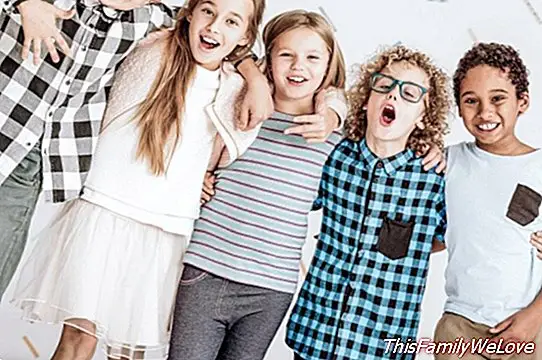Development of social skills at preschool ages

The human being is Social For nature. We live together with other people and from infancy the youngest ones relate to others, so educating to develop skills that favor coexistence is a good idea since childhood. This way you can prevent problems arising from the lack of these skills such as school bullying.
What skills to enhance, how to do it? Ellen McGinnis and Arnold P. Goldstein, experts in education, point out the following techniques to develop social skills from the pre-school stages. A formula to prevent violence among the smallest and the promotion of patterns of peaceful coexistence in children from the earliest ages.
Importance of these teachings
Social skills provide other children with other skills. They not only serve to be able to relate with others of their age. They also make the little ones in the house develop skills such as:
- Courtesy. The teaching of social skills makes the little ones know techniques to be able to relate to others in a courteous manner. Something as simple as saying "good morning" can favor the integration of children in groups.
- Assertiveness. When a child lacks this kind of skills and does not manifest his desires, he ends up moving away from his classmates because he is not able to show himself as he is. Finally, children without assertiveness end up assuming the role of victim.
- Conflict management. Knowing how to respond peacefully to a conflict situation helps the youngest children to solve their problems by asking teachers for help or telling their parents instead of increasing their hardness.
Benefits of teaching at an early age
Teaching these skills from an early age is a great decision, these are some of the reasons for this:
- The age of the children means that they have not acquired a significant number of social skills, so they will be less likely to conflict. Working with young children around prosocial skills in the school setting is, then, a great contribution to their growth.
- At these ages the youngest children start school, so they can put these social skills into practice and internalize them early. In this way, its social and personal development will be strengthened.
- Finally, the teaching of social skills also contributes to the development of the child's personality and cognitive and intellectual abilities.
Damián Montero




